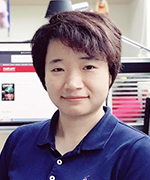
 | 姓 名: 康岚 学 位: 博士 导师情况: 博士生导师 研究领域: 干细胞生物学,发育生物学 研究方向: 1. 体细胞重编程的分子机制。 2. 非编码RNA在胚胎发育中的功能及调控机制。 3. 多能干细胞向生殖细胞定向分化的机制及应用。 联系电话: 021-65987363 E-mail : kanglan@tongji.edu.cn 招生要求: 勤于并善于思考、有责任感和合作精神、扛得住压力耐得住寂寞 |
个人简历:
2018.02-至今 同济大学,生命科学与技术学院 教授
2012.10-2018.01 大连医科大学,肿瘤干细胞研究院 教授
2007.09-2012.07 北京协和医学院,北京生命科学研究所 生物化学与分子生物学博士
2003.09-2007.06 武汉大学,生命科学学院 理学学士
研究方向简介:
康岚博士主要研究方向是体细胞重编程的机制和应用以及胚胎发育中的表观调控机制。2009年首次证明了iPS细胞的完全多能性,在国内外引起广泛关注,被美国时代杂志评为2009年世界十大医学突破之一。获得多项国家及省部级科研基金支持,入选国家自然科学基金委优秀青年项目,以第一作者或通讯作者在本领域知名期刊Cell Stem Cell,Cell Research,Stem Cell Report等期刊上发表多篇论文,累计引用600余次。
发表论文:
1.Wu L, Shen J, Hou Z, Zhang Y, Bi Y, Zhang R, Bai H, Ye W, Chen K, Zhu J, Xi C, Xu Y, Kou X, Zhao Y, Li C, Fan H, Le R, Wang Y, Xu X, Xu S, Wang H, Gao S#, Kang L#. Obox1 deficiency impairs fertility in female mice. Fundamental Research 67(5):958-969 (2025). (Correspondence author)
2.Chen K, Liu W, Zhu J, Kou X, Zhao Y, Wang H, Jiang C#, Gao S#, Kang L#. Pivotal role for long noncoding RNAs in zygotic genome activation in mice. Science China Life Sciences 67(5):958-969 (2024). (Correspondence author)
3.Zhu J, Chen K, Sun Y, Ye W, Liu J, Zhang D, Su N, Kou X, Zhao Y, Wang H, Gao S#, Kang L#. LSM1-mediated Major Satellite RNA decay is required for nonequilibrium histone H3.3 incorporation into parental pronuclei. Nature Communications 14(1):957 (2023). (Correspondence author)
4. Wu L, He S, Ye W, Shen J, Zhao K, Zhang Y, Zhang R, Wei J, Cao S, Chen K, Le R, Xi C, Kou X, Zhao Y, Wang H, Kang L#, Gao S#. Surf4 facilitates reprogramming by activating the cellular response to endoplasmic reticulum stress. Cell Proliferation 54(11):e13133 (2021). (Co-correspondence author)
5. He J, Ye W, Kou N, Chen K, Cui B, Zhang X, Hu S, Liu T#, Kang L#, Li X#. MicroRNA-29b-3p suppresses oral squamous cell carcinoma cell migration and invasion via IL32/AKT signalling pathway. Journal of Cellular and Molecular Medicine 24(1):841-849 (2020). (Co-correspondence author)
6. Kang L*, Chen J*, Gao S#. Historical review of reprogramming and pluripotent stem cell research in China. Yi Chuan 40(10):825-840 (2018). (First author)
7.Wu L, Wu Y, Peng B, Hou Z, Dong Y, Chen K, Guo M, Li H, Chen X, Kou X, Zhao Y, Bi Y, Wang Y, Wang H, Le R, Kang L#, Gao S#. Oocyte-Specific Homeobox 1, Obox1, Facilitates Reprogramming by Promoting Mesenchymal-to-Epithelial Transition and Mitigating Cell Hyperproliferation. Stem Cell Reports 9(5):1692-1705 (2017). (Co-correspondence author)
8.Li X, Ma C, Zhang L, Li N, Zhang X, He J, He R, Shao M, Wang J, Kang L#, Han C#. LncRNAAC132217.4, a KLF8-regulated long non-coding RNA, facilitates oral squamous cell carcinoma metastasis by upregulating IGF2 expression. Cancer Letter 407:45-56 (2017). (Co-correspondence author)
9.Qin S, Yang D, Chen K, Li H, Zhang L, Li Y, Le R, Li X, Gao S# and Kang L#. Pkm2 can enhance pluripotency in ESCs and promote somatic cell reprogramming to iPSCs. Oncotarget 8:84276-84284 (2017). (Co-correspondence author)
10.Feng X, Xu X, Xiao X, Zou K, Yu W, Wu J, Tang R, Gao Y, Hao J, Zhao X, Liao Y, Chen Y, Huang W, Guo W#, Kang L#, Deng W#. NMI inhibits cancer stem cell traits by downregulating hTERT in breast cancer. Cell Death & Disease 8(5):e2783 (2017). (Co-correspondence author)
11.Wang M, Zhang Y, Wang T, Zhang J, Zhou Z, Sun Y, Wang S, Shi Y, Luan X, Zhang Y, Wang Y, Wang Y, Zou Z, Kang L#, Liu H#. The USP7 Inhibitor P5091 Induces Cell Death in Ovarian Cancers with Different P53 Status. Cellular Physiology and Biochemistry 43(5):1755-1766 (2015). (Co-correspondence author)
12.Hao J, Xu H, Luo M, Yu W, Chen M, Liao Y, Zhang C, Zhao X, Jiang W, Hou S, Feng X, Zou K, Chen Y, Huang W, Guo W#, Kang L#, Deng W#. The tumor-promoting role of TRIP4 in melanoma progression and its involvement in response to BRAF-targeted therapy. Journal of Investigative Dermatology 138(1):159-170 (2017). (Co-correspondence author)
13.Kang L, Gao S. Generation of Viable Mice from Induced Pluripotent Stem Cells (iPSCs) Through Tetraploid Complementation. Methods in Molecular Biology 1330:125-32 (2015). (First author)
14.Kang L, Wu J, Tao Y, Li H, Liu X, Gao S, Wang Q. Cell Type-Specific Expression Profile and Signaling Requirements in Early Hematopoietic Reprogramming. Stem Cells and Development 24(12):1483-92 (2015). (Co-correspondence author)
15.Kang L, Gao S Pluripotency of induced pluripotent stem cells. Journal of Animal Science and Biotechnology 28;3(1):5 (2012). (First author)
16.Kang L, Wu T, Tao Y, Yuan Y, He J, Zhang Y, Luo T, Kou Z, Gao S. Viable mice produced from three-factor induced pluripotent stem (iPS) cells through tetraploid complementation. Cell Research 21(3):546-9 (2011). (First author)
17.Kang L, Kou Z, Zhang Y, Gao S. Induced pluripotent stem cells (iPSCs)--a new era of reprogramming. Journal of Genetics and Genomics 7(7):415-21 (2010). (First author)
18.Kou Z*, Kang L*, Yuan Y, Tao Y, Zhang Y, Wu T, He J, Wang J, Liu Z, Gao S Mice cloned from induced pluripotent stem cells (iPSCs). Biology of Reproduction 83(2):238-43 (2010). (Co-first author)
19.Kang L, Wang J, Zhang Y, Kou Z, Gao S. iPS cells can support full term development of tetraploid blastocyst-complemented embryos. Cell Stem Cell 5(2):135-138 (2009). (First author)
 |
同济大学高绍荣课题组 地址:上海市四平路1239号同济大学,道交馆 邮编:200092 电话:021-65982276 |